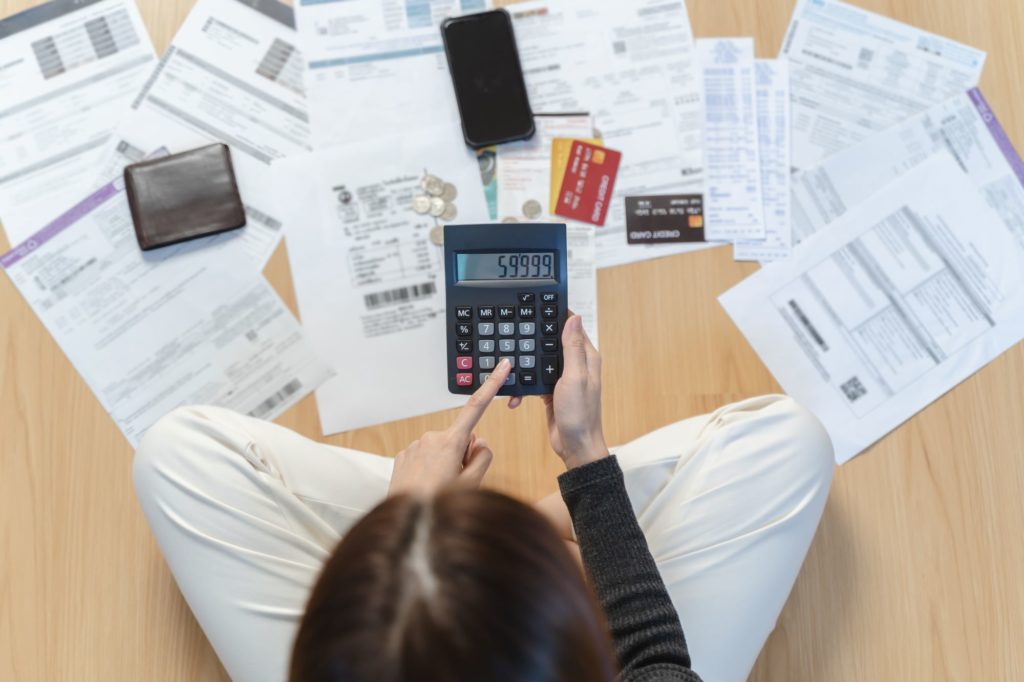Debt Consolidation 101: When Is It A Good Move?

Understanding debt can be a daunting task, especially when it comes to the methods and tools designed to help manage it. Among these various tools, one that’s gained significant attention in recent years is debt consolidation. If used effectively, it could be a strategic step towards financial stability.
Yet, it begs the question: when is debt consolidation a good move? It’s important to know its details before considering if it’s right for you. The answer isn’t always straightforward as it largely depends on individual financial circumstances. A powerful tool in the right situation is debt consolidation personal loans, which can simplify your repayment process and potentially lower your interest rate.
Understanding Debt Consolidation
Debt consolidation is a financial strategy that involves taking out a new loan to pay off multiple debts. It’s like pulling together various small ripples to make a larger but manageable wave. This process can simplify your debt management by turning multiple monthly payments into just one.
One of the primary advantages of debt consolidation is the potential to lower your overall interest rate. Lower interest rates mean you can spend less money paying off the debt and more money reducing the principal balance.
Criteria For Debt Consolidation
To make debt consolidation work for you, it’s essential to consider some crucial factors. Are your debts unsecured like credit card debts, personal loans, or medical bills? Debt consolidation usually isn’t a solution for secured debts like a mortgage or auto loan. Furthermore, it’s also necessary to have a reliable source of income that can cover the payments of the consolidation loan.
Good credit plays a pivotal role here. A solid credit score can secure a debt consolidation personal loan with a lower interest rate. But what if your credit score isn’t so high? It might be beneficial to look into credit repair strategies before consolidating your debt.
Analyzing Your Debt Situation
Before plunging into debt consolidation, ensure you’ve thoroughly analyzed your debt situation. Have a clear understanding of the total amount you owe, the individual interest rates on each debt, and the total monthly payment. It’s also worth considering if the current repayment timelines align with your financial goals.

If you’re juggling multiple high-interest debts and the stress of different repayment schedules is overwhelming, debt consolidation might be a good move. However, remember that consolidating your debt doesn’t make it disappear; it just reorganizes it to make it more manageable.
Choosing The Right Debt Consolidation Strategy
There are multiple ways to consolidate debt, and choosing the right one depends on your financial situation and goals. Debt consolidation personal loans are a popular choice. They offer the advantage of a fixed repayment term and interest rate, which means your monthly payment stays the same throughout the loan term.
Credit card balance transfers are another option. This involves moving balances from multiple cards onto one card, ideally with a lower interest rate. However, this strategy requires discipline as the low rates are typically promotional and increase after a certain period.
Regardless of the method you choose, ensure it aligns with your financial capability and long-term goals.
The Risks And Downsides Of Debt Consolidation
While debt consolidation can be a powerful tool, it’s not without risks. One of the biggest pitfalls is the potential to accumulate more debt. If you’re not careful, you could end up in a worse situation than before, particularly if you continue using credit recklessly.
Consolidating debt can also extend your repayment period. While this can lower your monthly payments, it also means you’ll be in debt longer. Plus, you might end up paying more interest over the life of the loan.
In addition, if you secure your consolidation loan with collateral like your home and fail to make the payments, you risk losing your assets. It’s a serious downside to consider.
The Importance Of Financial Discipline
When considering debt consolidation, financial discipline is paramount. This isn’t a quick fix but rather a tool that can help if used responsibly. After consolidating your debts, it’s important to avoid the temptation of racking up new debts.
Budgeting is essential here. Know where your money is going every month. You need a clear plan to stay on track with your consolidation loan payments and manage your other expenses effectively.
Maintaining a savings account for emergencies can prevent you from falling back into debt. Even small monthly contributions can make a significant difference over time.
When Is Debt Consolidation A Good Move?
Now, let’s circle back to the original question. When is debt consolidation a good move? The answer is unique to each individual’s financial situation. However, some common signs might indicate it’s a good option.
If you have high-interest, unsecured debts from credit cards or personal loans, debt consolidation could be beneficial. A strong credit score can help you secure a lower interest rate, making your debt more manageable. Moreover, if keeping track of multiple payments each month is causing stress, consolidating your debts into a single payment can simplify your financial life.
In contrast, if your debts are manageable or related to secured loans like mortgages, debt consolidation might not be the best route. Similarly, if you lack the financial discipline to avoid new debt, consolidation could create more problems than it solves.
Conclusion
Debt consolidation can be a beneficial tool for managing and reducing debt, provided it’s used wisely. It can simplify your financial obligations, possibly reduce your interest rates, and provide a light at the end of the debt tunnel. However, it’s not a silver bullet. It requires careful consideration, financial discipline, and a commitment to a debt-free future.



